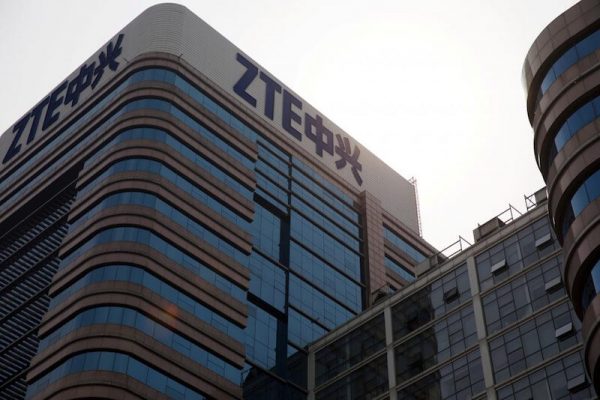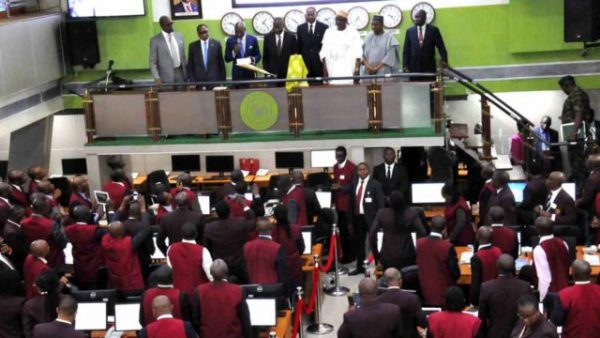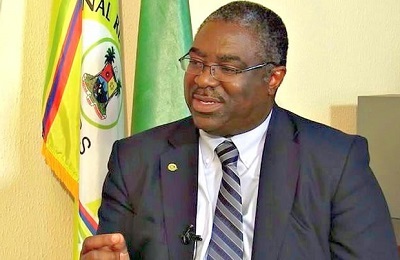Senate Alters CBN Act To Bar Governor, Deputies From Politics

• Proposes bill to prohibit use of foreign currency in local transactions
• Moves to amend Cybercrimes Act, empower NSA to monitor compliance
• Summons Ministers of Finance, Budget ahead of Tinubu’s budget presentation in Nov
The Senate yesterday considered two bills seeking to ban the governor of the Central Bank of Nigeria (CBN) and deputy governors of the apex bank from participating in politics. The two bills passed a second reading during plenary at the upper chamber.
This is coming 17 months after the former CBN governor, Godwin Emefiele, picked up the N100 million presidential Nomination and Expression of Interest forms of the ruling All Progressives Congress (APC), allegedly purchased for him by some interest group of rice farmers.
The situation ignited negative reactions from the public, with many Nigerians and groups calling for Emefiele’s resignation or sack by the then President, Muhammadu Buhari.
According to Section 9 of the CBN Act, 2007, the apex bank governor must not venture into any other vocation while in office and must resign in writing to the President if he nurses such intention.
Despite the outcry, Emefiele maintained his position as the CBN governor until Buhari completed his tenure and handed over to his successor, President Bola Tinubu, in May.
Coming on board, Tinubu embarked on reforms in the financial sector by suspending Emefiele from office as well as prosecuting him in court.
At plenary yesterday, the Senate passed the two bills after the consideration of similar bills sponsored by Sunday Karimi (APC, Kogi) and Darlington Nwokocha (LP, Abia).
During the debates, the lawmakers proposed that Section 9 be further amended to insulate the CBN governor and deputies from participating in politics while in service.
Both senators equally proposed that the Auditor-General of the Federation, Chairmen of the Federal Inland Revenue Service (FIRS) and Chartered Institute of Bankers in Nigeria (CIBN) be represented on the board of the CBN.
Senator Adams Oshiomhole (APC, Edo), however, opposed the second reading of the bill, arguing that the case of Emefiele, which was the case in reference, was a consequence of the absence of governance and the will to enforce the extant laws.
Explaining the motivation for his bill, Karimi said the piece of legislation would, if passed, lead to greater accountability and transparency in the operations of the apex bank.
He also proposed an amendment to Section 20 of the CBN Act, with the insertion of Section 20 (A) immediately after the existing section 20, before the existing section 21.
The proposed amendment reads: “20(A) Prohibition of the use of foreign currency in democratic transactions: No person or body corporate shall use any foreign currency as a means of exchange for goods, services and other transactions in markets, supermarkets, hotels, restaurants, airports and other places of business in Nigeria except by a bank, licensed Bureau De Change and other financial institutions duly authorised by the CBN to trade, deal and use such currency and no individual or business entity in Nigeria shall advertise, denominate or price its goods or services in any currency other than the Nigerian Naira and Kobo.
He also said his proposed amendment, if passed, will prohibit the use of foreign currency in local transactions in Nigeria.
The Deputy Senate President, Jibrin Barau, who presided yesterday, therefore, gave the Senate Committee on Banking and Finance two weeks to report back on the CBN Amendment Bill.
INDICATIONS emerged yesterday that President Tinubu will present the proposed N26.1 trillion 2024 budget estimates to a joint session of the National Assembly in three weeks.
Ahead of the presentation, the Senate, through its Committee on Appropriations, has summoned the Minister of Finance, Wale Edun; and his counterpart on Budget and Economic Planning, Atiku Bagudu, to appear before it next Wednesday for explanations.
Chairman of the Committee, Senator Solomon Olamilekan Adeola (APC, Ogun), disclosed to journalists that President Tinubu would forward the 2024 – 2026 Medium Term Expenditure Framework (MTEF) and Fiscal Strategy Paper (FSP) to both chambers of the National Assembly next week for scrutiny and approval.
Adeola said the lawmakers would try as much as possible to make sure that the budget comprises 55 per cent allocation for capital expenditure as against 25 to 30 per cent it has been over the years, adding that the 10th Senate would maintain the January to December budget cycle, which the ninth National Assembly started, despite the delay in budget presentation for 2024 fiscal year.
He also said that the appropriation committee would not entertain any approval for corrigendum after budget consideration and passage.
“Information at our disposal indicates that President Tinubu would present 2024 budget proposals early next month. Ahead of that presentation, Mr President would forward to both chambers of the National Assembly, MTEF and FSP papers next week for thorough scrutiny and possible passage.
He said: “I want you to take cognisance of the fact that there is a change of government prior to now and as of May 29, a new government came in place.
“There is a teething problem because there is a change of government. The new administration has a new mantra that encapsulates its vision and there must be challenges. We will do a thorough job on the budget. Our job is to verify the budget to meet the expectations of the people,” he said.
MEANWHILE, a bill seeking to amend the Cyber Crimes Act of 2015, has passed second reading in the Senate. The bill, sponsored by Senator Shehu Buba (PDP, Bauchi), is seeking to, among other things, correct errors contained in the principal Act and empower the National Security Adviser (NSA), to monitor compliance with provisions of the Act.
The bill was read for the first time on October 18, 2023. Leading the debate on the proposed amendments during Wednesday’s plenary, Buba said the proposed amendment was designed to remove encumbrances to the proper implementation of provisions of the Act.
Buba said: “The digital and information technology age has created new avenues and tools for committing traditional crimes and new forms of crimes. The architecture of the digital world challenges law enforcement institutions and the criminal justice system to device measures and procedures to contend with digital or cybercrimes.
“In Nigeria, there has over time been a significant increase in internet-based advance fee fraud. There are cases of hacking into emails, websites and infringement on privacy rights of persons and institutions, which call for an urgent solution.
“Legislation on advance fee fraud is among the earliest interventions by the Nigerian government on cybercrimes, but the law is inadequate to meet the intricacies of technological development.
“The Act is designed to ensure the protection of critical national information infrastructure and to promote cyber security, protect computer systems and networks, electronic communications, data and computer programs, intellectual property and privacy rights.
“This Bill seeks to address all anomalies that have hindered the effective implementation of the Act. Over the years, since the enactment of the Cybercrime Prohibition, Prevention etc.) Act 2015, there has not been compliance with the provision of Section 44(2) (a) of the Act.
“Also, to realign legislative efforts with objectives of the current National Security Strategy 2019. The national strategy has expressly defined and embedded Cyber-security as one of the major components of a comprehensive security strategy to help safeguard, protect, defend national economic, political, and security infrastructures, advance national digital well-being, and to deter and react with both defensive and offensive capabilities cyberspace.
“Cybercrime is just one of them, not the main threat. Others classified are Cyber Terrorism & Terrorist Use of the Internet child online use and exploitation, online gender exploitation, elections interference, espionage, advanced persistent threats, and wide-scale digital economic infrastructure weakness and vulnerabilities among others.
“Equally, there has not been any Compliance Monitoring System in Sub section 6(a) of the Section 44 of the Act. The National Security Adviser will ensure the Compliance Monitoring System.”
The legislator explained that the bill does not reflect this reality as well as all other major threats. He appealed for the support of his colleagues to enable the bill to undergo further legislative action.
After taking contributions from his colleagues, Deputy President of the Senate, Jibrin sought and received the approval of senators to refer the bill to the Committee on National Intelligence and Security.







